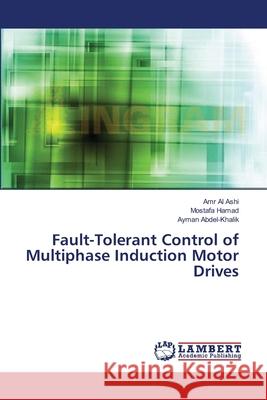Fault-Tolerant Control of Multiphase Induction Motor Drives » książka
Fault-Tolerant Control of Multiphase Induction Motor Drives
ISBN-13: 9783659409745 / Angielski / Miękka / 2013 / 140 str.
Although three-phase electric machines play a great role in almost all industrial applications, they still have limitations to cover high power requirements needed for traction, propulsion and other high power applications. Nowadays, multiphase electric machines with high output power can solve this problem. A multiphase machine does not only provide higher torque per unit volume, but it also provides higher degrees of reliability due to fault-tolerant capability provided by the additional degrees of freedom. This is a crucial issue for safety-critical applications, e.g., electric ship propulsion, air crafts and aerospace applications. This work presents in details a seven-phase induction motor drive based on indirect field oriented control technique with fault-tolerant controller, which allows the motor to ride-through the fault period caused by a phase loss. Using MATLAB simulation, the problem of "phase disconnection" is addressed and two fault-tolerant control strategies are proposed to compensate its effect.
Although three-phase electric machines play a great role in almost all industrial applications, they still have limitations to cover high power requirements needed for traction, propulsion and other high power applications. Nowadays, multiphase electric machines with high output power can solve this problem. A multiphase machine does not only provide higher torque per unit volume, but it also provides higher degrees of reliability due to fault-tolerant capability provided by the additional degrees of freedom. This is a crucial issue for safety-critical applications, e.g., electric ship propulsion, air crafts and aerospace applications. This work presents in details a seven-phase induction motor drive based on indirect field oriented control technique with fault-tolerant controller, which allows the motor to ride-through the fault period caused by a phase loss. Using MATLAB simulation, the problem of "phase disconnection" is addressed and two fault-tolerant control strategies are proposed to compensate its effect.











